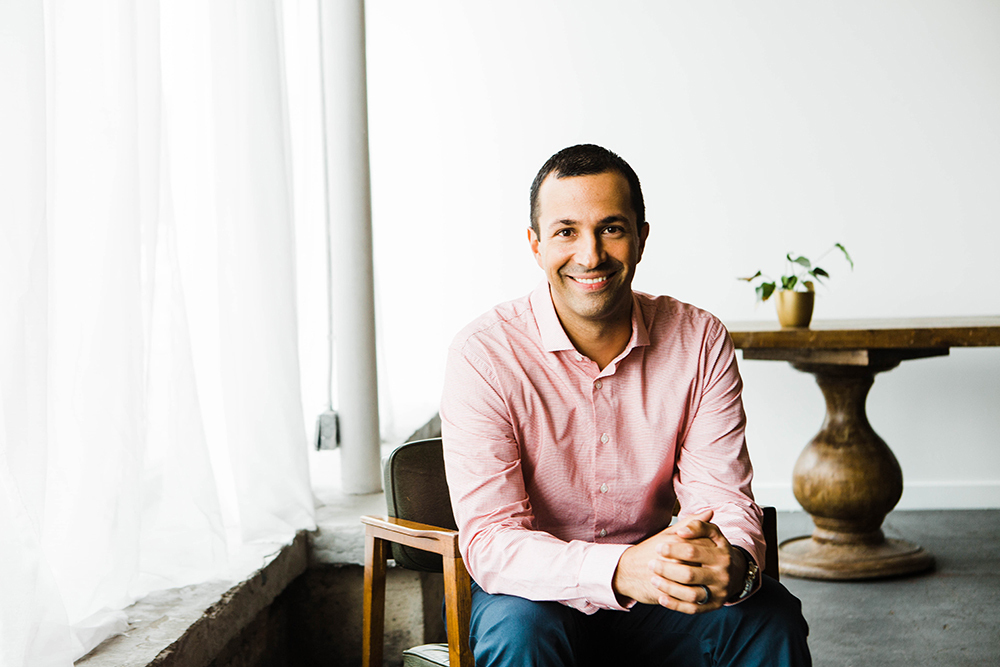If you have been a blogger for a while, you know how important Search Engine Optimization is to be able to grow your blog (and business!). Today, we talk with Ty Kilgore, Founder and CEO of Everything Digital Marketing to cover all things SEO, and beyond!


What is keyword research is and why is it important?
Everyone typically uses Google for a variety of reasons, whether it’s for finding directions, finding a movie ticket, finding flights, finding food recipes.
Google has a certain amount of information stored in a database that tells how many times a keyword gets searched. Every month Google collects that information and there are different keyword volumes, where there are certain keywords that are more competitive and also have a higher rate of return than others.
So essentially, keyword research is the practice of identifying keywords that provide you with the knowledge of how competitive that term is going to be.
Knowing the volume of a keyword can be very impactful to your SEO.
With every position on a Google search result list, the percentage of people who click that link drops. For example, position number one, 32% of people click that number one result. After that, it drops to 24% for number two. So even if you rank number one for a term, you’re only getting 32% of whatever the search traffic volume is. So it then becomes a numbers game.
The strategy of knowing how to do and perform keyword research is a very important part of the puzzle for any food blogger once they’ve realized that SEO is where they want to go and they’re tired of seeing the algorithm of Pinterest and Facebook and Instagram cut their traffic in half.
Learning about keyword research is a valuable skill to have when you’re creating recipes.
Keyword research is the map for you to figure out if this is worth your time to create this recipe.
How do we figure out where we should be spending our time?
You can log into a tool called Google Search Console and look at the last 12 months’ worth of data and look at the queries that bring in the traffic that is non-branded (meaning someone searching your brand name).
When it comes to SEO, there are three main buckets to focus on:
- Relevancy – the actual boards on the page, the content that you see when you log in and view a webpage.
- Authority – which is the number of back links you have coming into your website and also how authoritative the search engines deem that you are.
- Technical /Code – The development, the speed, all the factors that go into your website and how Google can crawl it.
When you’re looking at where to decide where you should spend your time first, you have to decide what are the keywords that already bring in traffic and what’s the search volume for them. You have to know from the top 10 to top 25 queries that bring in traffic for your website and figure out what that search volume is for each of those top 25.
What does each blog post need for SEO?
When Ty teaches keyword research, you should have the following:
- Have six keywords that you’re trying to optimize for each and every blog post.
- Have head terms which are very top terms.
- Mid-tier terms
- Long Tail terms are very low in search volume but will allow you to get traction for your term for your post.
So keyword research is the first part of that equation to set yourself up for success. Consider these questions as you are doing your research as this will help you see success:
- What are the keywords that you’re going to target?
- What are the six that you’re going to create and then where are you going to put them?
- How are you going to write your post?
- What are you going to do to your post to make it stand out from the others?
Tips you have for managing new content versus revising old content
I always tell people don’t buy an SEO tool until you’re ready to use it and frequently. Once you’re ready to use them, make sure that you get some training on how to use the tool.
If you’re going to spend time to optimize a post, don’t spend time on something that’s not already prime to be optimized and to have a return for it. But when you have an existing post that’s already starting to rank and you want to get more traffic to it, use these research tools to do keyword research:
If you’re doing keyword research for posts that already exist, you need to reach for the low hanging fruit, by going to a tool and looking at page 2, page 3 keywords, and then selecting those posts that have the biggest upside and looking at how to improve that content, so that you can rank for the higher terms instead of just hoping that Google will give you more traffic.
Optimizations for up-leveling your rankings
Know the keywords and the research that you need to do, where to put those keywords, and then also how to create your blog posts. Examine some of the top blogs that are consistently bringing in traffic and you will see that they follow a very particular outline:
- Meta-description at the beginning
- Featured image
- Introductory paragraph about why their content Is better that somebody else’s. If you struggle to answer why your content is better, then your readers won’t be able to answer that question either.
- Talk about the ingredients or about the history of the post itself.
The great test I like to have people take is to grab somebody that’s between the ages of 9-12 and give them all the ingredients that they would need to create your recipe and then give them your blog post. Take a step back and observe them to see if they can go from simply reading your post to the finished product. If they can’t, if they need to ask a question or find out more information, you did not write your blog post correctly.
You may wonder why does Food Network, Delish or All Recipes rank so well, it’s because they have such high authority.
If you are going to compete with somebody that has really high authority, you have to tip the scales in your favor by writing a blog post that blows theirs out of the water.
Google is in the business of giving traffic to the people who answer the question that people are asking in that little search query box, better than anyone else.
How to manage all of the SEO information out there
The first thing to do is that for the technical things that Google is coming out with, you need to hire somebody. Don’t overreach your area of expertise. I recommend from a business standpoint, outsource the stuff that you don’t know, unless you’re going to spend the time and have the willingness to do it.
Next, I would recommend that you spend time looking at variety of people’s opinions. There’s going to be conflicting information out there, especially around SEO. You need to take everything with a grain of salt. Oftentimes that recommendation might not be universal, it might not apply to your blog. You need to learn to experiment with what you have, instead of relying on the advice that another food blogger gave you. Every website is unique.
There is no silver bullet when it comes to SEO.
Invest your time in the foundational things, learn the plays and when you know how to write an SEO title, you know how to research your competition. When you know how to write a blog post, that is your best blog post ever, you set yourself up for much bigger success.

Connect with Ty
To connect with Ty and learn more on SEO and keyword research, check out his website everythingdigitalmarketing.com.
Ty Kilgore started his online marketing career over 10 years ago. He led, managed, and educated large teams at three different digital marketing agencies while living in Utah. During that time, he customized successful digital campaigns for large well-known companies such as Verizon, Pingdom, Frontier, Dell, McGraw Hill, ZAGG, CityPass, Mary Kay, and many more.
He has taught and coached large and small online business owners for years on best SEO and traffic acquisition tactics and loves helping them achieve success and excel in this ever-changing online world.
He now focuses on teaching and building strategy for online content creators, influencers, and bloggers through Everything Digital Marketing.





Thank you for taking the time to interview Ty Kilgore and provide such valuable insights into SEO keyword research. I appreciate the effort you made to share this information with others. Your work is a great resource for those looking to improve their SEO knowledge.